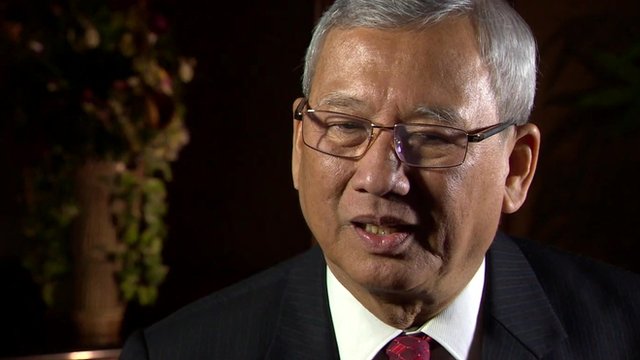The Thai military has taken control of the government in a coup, the country’s military chief announced in a national address Thursday.
The move came after rival factions were unable to come up with a suitable agreement to govern, the military chief said.
Hours earlier, members of the military and opposition parties met for a second day to try to find a solution to the crisis in Thailand, which has been under martial law since Tuesday.
Fruitless talks
During the meetings this week, Thai election officials said the country’s caretaker prime minister and his Cabinet should resign and a new interim government should be named ahead of elections to be held in six to nine months.
But interim Prime Minister Niwatthamrong Boonsongpaisan said there’s no chance that the caretaker government will resign.
“This can’t be done because it is illegal,” a statement from Niwatthamrong’s office said. “To find (a) solution, (it) must be done accordingly to laws and under the constitution.”
Among those invited to the meetings were the chairman of the election commission, the acting senate house speaker, the leader of the governing Pheu Thai party, the leader of the opposition Democrat Party, the leader of the anti-government protesters and the leader of the pro-government “red shirts.”
Deep-seated tensions in Thailand in recent months have caused deadly clashes, paralyzed parts of the capital and brought down Prime Minister Yingluck Shinawatra.
Sudden martial law
The military, which has a long history of interfering in Thai politics, stepped into the fray Tuesday with its sudden declaration of martial law — without giving any warning to the acting prime minister.
“They took this action unilaterally,” an aide to the prime minister told CNN, describing the situation earlier this week as “half a coup d’etat.”
Human rights activists warned that the imposition of martial law is a major step away from democracy and lacks safeguards. Human Rights Watch said it “threatens the human rights of all Thais.”
The law includes restrictions on where protesters can gather, what TV and radio broadcasters can air and social media posts.
The interim prime minister said he is glad the army chief is trying to find an end to the crisis.
The government wants a solution “under democratic means,” his statement said, “including to find the new elected government the soonest to solve the problems for the people of Thailand.”







